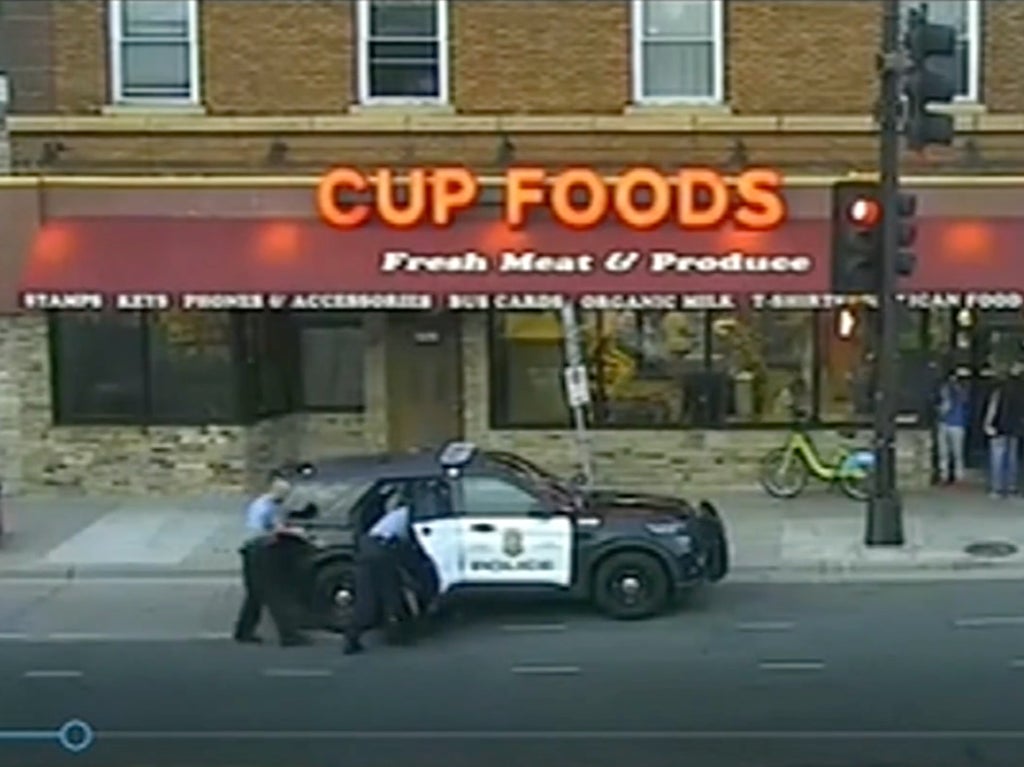
George Floyd was exhibiting “superhuman” strength before being killed by Minneapolis police in 2020, according to testimony from Tou Thao, one of three former Minneapolis officers who are now facing a federal civil rights trial for their roles in his fatal arrest.
Officers were called to a Minneapolis corner store in May 2020 on reports of Floyd using a counterfeit $20 bill. When they encountered Mr Floyd, Mr Thao believed the man was “under the influence of some type of drugs” because of “beads of sweat on his head,” he said during testimony on Tuesday.
Though the interaction began calmly, Mr Floyd appeared to become anxious when officers demanded he get in the back of their squad car, a back-and-forth that devolved into a lengthy physical struggle and officers restraining Mr Floyd on the ground. Mr Thao testified he had never seen someone resist being put in a police cruiser so persistently.
The federal civil rights trial follows the April murder conviction of Derek Chauvin, another former MPD officer involved in the arrest, who knelt directly on Mr Floyd’s neck for more than nine minutes. Chauvin pleaded guilty to separate federal civil rights charges in December.
The federal case concerns whether Mr Thao, as well as his police colleagues J Alexander Kueng and Thomas Lane, violated Mr Floyd’s civil rights by failing to render him medical aid or intervene against their fellow officers.
During his testimony, Mr Thao, who engaged with a crowd of bystanders while his partners pinned Mr Floyd down, said he believed the other officers were taking care of the man’s medical needs.
“If they’re not doing CPR, I assume he’s still breathing and fine,” Mr Thao said.
Bystander and police video captures Mr Floyd repeatedly calling out that he can’t breathe before slowly losing consciousness. A crowd of witnesses that surrounded the scene of the arrest also repeatedly urged officers to let Mr Floyd up because he was visibly and audibly struggling to get air.
In Tuesday’s testimony, the first since the prosecution rested on Monday, Mr Thao explained that he thought Mr Floyd was undergoing “excited delirium,” a quasi-scientific diagnosis often cited by police but not recognised by medical authorities like the American Medical Association.
The Minneapolis Police Department claimed it stopped training officers on excited delirium last year; however, the StarTribune reports the trainings continued until recently, which Minneapolis mayor Jacob Frey said was a result of an external contractor failing to follow the new directive.
On Monday, Timothy Longo, a former Baltimore police colonel and use-of-force expert for the prosecution, said Mr Thao and his partners departed from acceptable police conduct by failing to intervene or offer medical aid beyond calling an ambulance.
“No one asked Chauvin to get his knee off Mr Floyd’s neck,” Mr Longo said.
Mr Thao, during his comments on Tuesday, said he regularly practiced manoeuvres to apprehend suspects with his knee and was never corrected by Minneapolis Police Department training officers.
Former officers Lane and Kueng are expected to testify this week.







